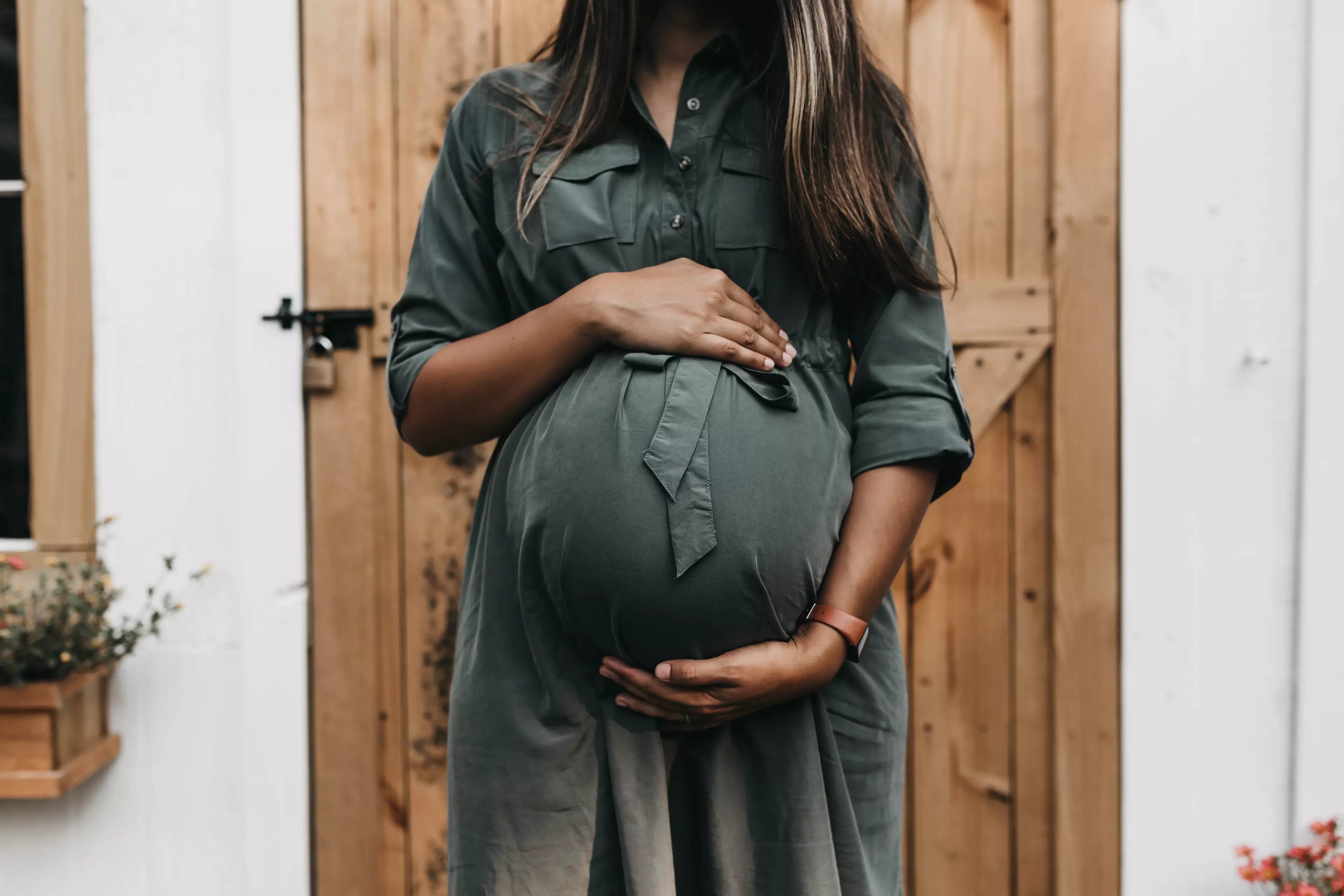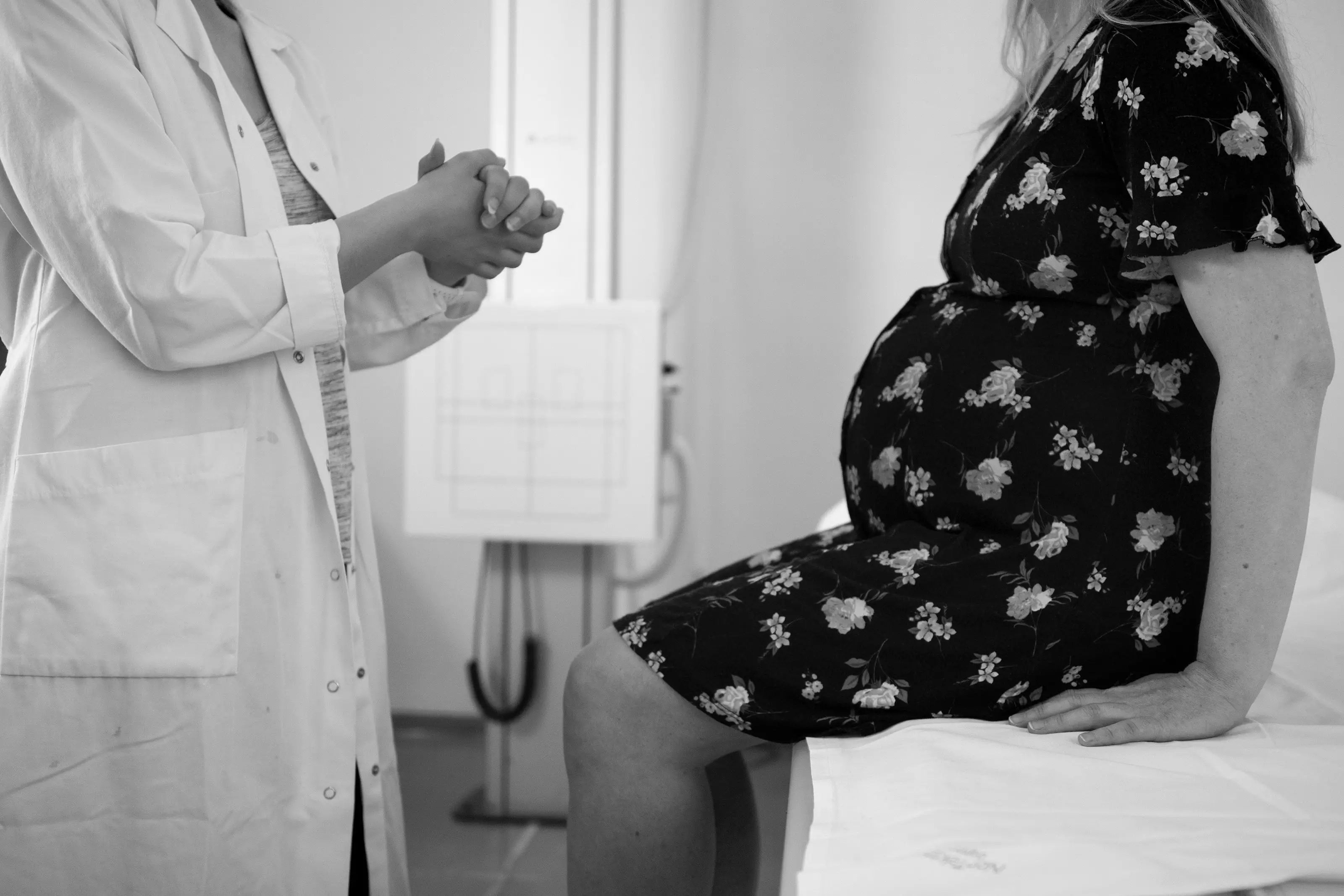
Expectant mums could have to declare every drink they have while pregnant, under new guidelines proposed by The National Institute for Health and Care Excellence (NICE).
The proposal - which is under consultation until 18th September - has come under fire from charities and advisory services, who have condemned the move as an infringement of data privacy rights.
NICE, an institute which creates guidelines and policies for the NHS, made the proposal in a consultation on how to improve the treatment of foetal alcohol spectrum disorder (FASD).
Advert
Under the guidelines, which are based on those already in place in Scotland, mums-to-be would be asked to share exactly how many drinks they have had at antenatal appointments.

Information given by expectant mums would include the number of units, type of alcohol, and even any drinks consumed before they realised they were pregnant.
Details of the mother's alcohol consumption would then be permanently attached to the child's medical records.
Advert
In their proposal, NICE said that identifying children at risk of FASD - a range of physical and mental conditions caused by drinking in pregnancy - required accurate information on how much alcohol the mother had consumed while pregnant.
This is particularly relevant for children who go into care, where it may not be possible to gather the relevant information from the birth mother at a later date.

But pregnancy charities including the British Pregnancy Advisory Service (BASP) and Birthrights have spoken out against the "unjustified and disproportionate" move, saying there is "no compelling research" to support it.
Advert
Clair Murphy, a spokesperson for BPAS, said: "Women do not lose their right to medical confidentiality simply because they are pregnant."
"Most women report drinking very little alcohol in pregnancy if any at all, even if they may have drunk before a positive pregnancy test."
Charity Birthrights shared similar criticisms, saying: "We have serious concerns about Nice's failure to recognise the need for informed consent to screening and transfer of information to the child's health record.
"It is unacceptable to propose such measures without any assessment of the impact on women and pregnant people, and their relationships with healthcare providers."

However, Adoption UK thought there was a "balance to be struck".
Advert
Chief Executive Sue Armstrong Brown said: "There is undoubtedly a balance to be struck here between the protection for the freedoms of the mother and the protection for the health of the unborn child.
"But the situation that we're in at the moment is that ... governments and health systems are only at the beginning of being able to correctly identify and then manage the condition. So, we're obviously in a situation where some things are going to need to change if we're going to improve."
While there are strong links between drinking more than 1-2 alcohol units a day with lower birth weight and premature births, research on the effects of low levels of drinking in pregnancy is less substantial.
Professor Tim Draycott, Vice President for Clinical Quality, Royal College of Obstetricians and Gynaecologists, said: "Alcohol consumption during pregnancy can lead to long-term harm to infants, including Fetal Alcohol Spectrum Disorder (FASD).
Advert
"Although diagnosis of FASD can be difficult, diagnosis at the earliest possible stage is vital for early intervention and care programmes that lead to better outcomes for infants at risk of FASD."
Judith Richardson, acting director of health and social care at NICE, said: "The feedback we receive from external organisations and members of the public is instrumental in understanding what works, and what doesn't, for practice in England.
"Our hope is that this second consultation will provide stakeholders with the opportunity to help NICE produce statements that will reduce the prevalence of, and improve the diagnosis of FASD."
NICE's draft proposal is open for public consultation until 18th September 2020 and can be viewed here.
Featured Image Credit: Unsplash